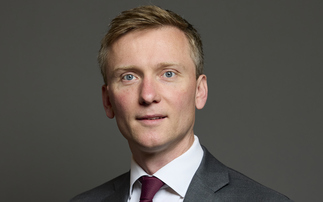Key points
At a glance
- Most pools will be ready by the April deadline set by government to start transitioning assets
- Three pools are renting ACS operators rather than setting up their own structures
- Recruitment has been a strong focus for most pools as they seek to build internal teams
Stephanie Baxter speaks to five pools about the progress they have made and their plans for the future beyond the April 1 deadline
It is almost three years since the government revealed it would force the 89 local pension funds in England and Wales to pool their assets in a bid to deliver cost savings, efficiencies, and greater scale. Since then, eight pools of various different sizes and structures have emerged across the £259bn Local Government Pension Scheme (LGPS) to meet the April 1 deadline to be ready to start transitioning assets.
While they have achieved a great deal in a short time, with some already up and running, most are still very much in development mode. It is interesting to compare the various approaches adopted by the pools; some have chosen to set up their own authorised contractual scheme (ACS) structures, while others are renting an ACS operator.
Ahead of the deadline, PP spoke to six pools about what routes they are taking, their achievements and next steps…
ACCESS
The pool's participating funds are Cambridgeshire, East Sussex, Essex, Hampshire, Hertfordshire, Isle of Wight, Kent, Norfolk, Northamptonshire, Suffolk, and West Sussex. Collectively, these have around £41bn assets and cover 900,000 members.
It is renting an ACS operator, and appointed Link Asset Solutions in March. Over an initial five-year term, Link will create and appoint managers to a number of investment sub-funds. The ACS will require Financial Conduct Authority (FCA) authorisation.
ACCESS has not yet finalised its staffing arrangements; all functions are being fulfilled using resources from the 11 funds.
It has already contractually pooled circa £11bn of passive assets under a single commercial relationship with UBS, which is expected to generate £5m cost savings per annum.
Norfolk Pension Fund investment and actuarial services manager Alexander Younger says the approach to infrastructure investing is "still to be finalised", although notes ACCESS is a participant in the cross-pool infrastructure group and is monitoring developments at other pools and across the industry.
The 11 funds have 1.1% asset allocation to infrastructure currently but expect this to increase to around 5% over the longer term.
The first assets will transition to the ACS during 2018, initially focusing on large liquid debt and equity portfolios. Legacy illiquid alternative positions and current direct property positions may be inappropriate for pooling.
Younger says one of its key aims for 2018-2019 is to further develop the pool's governance and monitoring arrangements to "ensure effective and value for money management of assets".
Border to Coast
The pool's 12 shareholder funds with total assets of £43bn are Bedfordshire, Cumbria, Durham, East Riding, Lincolnshire, Northumberland, North Yorkshire, South Yorkshire, Surrey, Teesside, Tyne & Wear, Warwickshire.
In January, the pool applied to set up an FCA-regulated investment company to manage assets through both internal and external management with a number of vehicles, including an ACS. It will not be ready to start transitioning assets by the April deadline; instead it will go live in July, which was agreed early on with government.
Chief executive Rachel Elwell, who joined in November, says: "It's absolutely right to do it correctly, not quickly, but ideally you still have a little sense of pace as it's important to get it done."
In February, Northern Trust won the contract to provide third-party administrator and depositary services, and develop an operating model for pooling.
It has made a number of big internal appointments, including a chief risk officer, and heads of equities and alternatives. Now it has the C-suite in place and has hired people on the operating side, it will start recruiting for the investment side. For the first years, the internal operating model will have around 70 people, of which half will be direct investment staff that will also include people looking after externally managed funds.
Around £10bn of internally-managed funds is likely to transfer to the pool in July. The team is working with the 12 partner funds to agree what should be the first funds to launch.
The pool's original cost-saving estimates original were £27m annually by 2021, increasing to £55.2m by 2030.
Read more: Interview with Rachel Elwell - How Border to Coast is meeting pooling challenges
Brunel Pension Partnership
The pool's shareholders are Avon, Buckinghamshire, Cornwall, Devon, Dorset, Gloucestershire, Oxfordshire, Somerset, Wiltshire and the Environment Agency, totalling £29bn in assets under management and 695,000 members.
Brunel was set up in July 2017 and has just received FCA authorisation as a MiFID full-scope investment firm; it decided not to set up its own ACS.
It has over 30 staff, including the chair and non-executive board members, and is seeking to hire another senior investment officer for elective services. It is using State Street for administration and custody.
By 2025 the pool expects to have saved £27.8m or 8.9 basis points in fees, and then net savings of £550m by 2036.
A £7bn passive equity portfolio, which Brunel has put it out for tender, will be the first to be transitioned into the pool, and expects completion by June.
Brunel will shortly put out a tender for an authorised corporate director to be the ACS platform for £8bn of active equities. CEO Dawn Turner says: "Unlike the other ACS rental approaches, Brunel will be the investment manager, which enables us to be fully in charge of the selection of managers that go into the sub-funds."
She adds: "Almost all assets will come under the pool management but some specialised assets may not transfer in the medium, for example cash management for cashflow purposes."
Brunel is updating its allocations at present but expects infrastructure allocations to be over 5%.
LGPS Central
The pool is a collaboration of LGPS funds totalling £45bn AuM, including Cheshire, Leicestershire, Shropshire, Staffordshire, West Midlands, Derbyshire, Nottinghamshire, Worcestershire and the West Midlands Integrated Transport Authority.
In January, it became the third pool to receive regulatory approval to operate an ACS. It will be a full-service asset management company, offering a full range of asset classes and discretionary advisory and execution services.
Since recruitment began in May 2017, there has been strong focus on building the board and the executive team. Andrew Warwick-Thompson, who joined the pool last summer as chief executive, says: "While we only completed the recruitment of the executive committee by the beginning of this year, we are nonetheless on target to launch our first range of pooled funds in April."
Assets managed internally by West Midlands and Derbyshire will be the first to move to the pool, with effect from 1 April. Three ACS funds totalling £5.5bn AuM will be set up on 3 April, covering UK passive funds, global ex-UK, and dividend growth.
By the end of the pool's first year of operation, it aims to have at least £12bn transitioned, which accounts for about a quarter of the available assets.
"Once we've completed recruitment across all asset classes, we will take further idea for further transitions and sub-funds and other types of portfolio to the partner funds," he says.
It will seek to offer investment funds across fixed income, active and passive equities, private equity, infrastructure, and property.
The pool is committed to at least £250m in cost savings over the next six years, and will commission a third-party analyst to look at all nine LGPS funds' portfolios by the end of March.
Read more: Interview with Andrew Warwick-Thompson - How LGPS Central is becoming an asset manager
Local Pensions Partnership
Before the government's pooling mandate was announced, the London Pensions Fund Authority and Lancashire County Pension Fund with under £11bn in total assets, decided to pool their investment and liability management.
The Local Pensions Partnership (LPP) has a regulated asset manager arm and also provides pension administration services. While it is one of the smallest pools, it hopes to reach £15bn AuM when Berkshire Pension Fund comes on board in late May/early June.
Since getting FCA authorisation two years ago, £9.5bn of assets have been pooled across global equities, private equity, infrastructure and credit. Last year, it launched credit and global infrastructure funds, and in March a £320m fixed income fund. A total return and real estate fund will follow later in the year.
On the equity side, the LPP had circa 20% of assets managed in-house, and the rest managed by a number of external companies.
Chairman Michael O'Higgins says: "We shifted the balance to 40% managed in-house, and for the rest we reduced the number of external houses and invited them to bid, making it clear that pricing would be part of what we wanted."
A combination of boosting its own team and putting cost pressure on investment firms generated £7.5m per annum in fee savings for global equities alone.
O'Higgins says: "We've saved more already than our business plan set out (the initial estimate was £30m net savings in investment management fees over five years), and as we continue to try to improve efficiencies, we anticipate more savings particularly on administration. In 2018/19 we expect to deliver more than £1m in administration cost savings."
Read more: Interview with Michael O'Higgins - What the Local Pensions Partnership has learned from pooling
London CIV
The London Collective Investment Vehicle (CIV) was the first LGPS pool to be set up, and before the government announced mandatory pooling. Bringing together 33 London boroughs to benefit from bigger scale and cost savings, the vehicle opened its doors to business two years ago, and became the first pool to receive FCA authorisation in 2015.
Some £14.6bn has been pooled or is under the London CIV's control, with another £1bn in the pipeline over the next couple of months, and five new funds due to launch over the summer. With 40% of the assets now pooled or under the CIV's control, interim CEO Mark Hyde Harrison says "we're on a pretty steady journey now".
However, it has faced challenges in recent months after the departures of its then CEO Hugh Grover, and CIO Julian Pendock. Its governance set-up was then criticised in a Willis Towers Watson report, urging the London CIV to overhaul the structure in order to be successful.
Hyde Harrison says the main issue is the pool was originally supposed to be only voluntary for the boroughs, because it was set up before government policy took a different turn.
"Many of the other pools have spent a lot of time on how they would approach investment and what their approach would be," he explains.
"Under the voluntary arrangement, it was a case of 'if it isn't what I want then I don't have to use it'; it didn't have to force that debate out from the boroughs. It didn't need to have that degree of commonality of purpose, it wasn't a requirement when the London CIV was set up and it proceeded on that basis.
"The issue we have is that the world has slightly changed around us, and we need to have that debate about how the London CIV works with the boroughs to find a commonality of purpose and clarity of vision for all to sign up to."
In light of the Willis Towers Watson report, the London CIV is looking at ways to change its governance structure.
This is the first part of a wider series looking at how the LGPS pools are developing. Follow this link to read further articles in this series.








